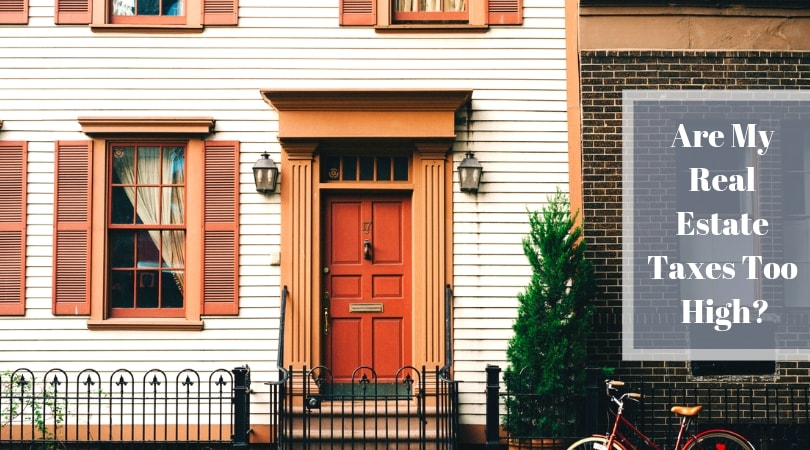Are My Real Estate Taxes Too High?
Categories: Property Management, Tax Strategies
Local real estate taxes are charged to nearly all privately-owned properties, including residences. These taxes pay for many public improvements such as infrastructure, schools, libraries, parks, police, and fire protection. Homeowners are not averse to paying taxes. They expect to pay their fair share of taxes, although not more than their neighbors with similar properties. Understanding how taxes are assessed, whether those taxes are reasonable, and how to reduce inflated taxes is important for any real estate owner.
Elements of a Tax Bill
A real estate tax bill is made up of two parts: property tax rate and assessed value. The property tax rate is applied to a property’s assessed value. The local property tax rate is determined by a town’s Board of Assessors, based on projected town expenditures for the coming year. The Board of Assessors also develops opinions of fair cash value (as of January 1 of the prior fiscal year) for every property in its jurisdiction. The property tax rate is expressed in number of dollars per thousand dollars of assessed value. So, if a home is assessed at $100,000 and the tax rate is $25 (.025), the tax bill is $2,500.
Researching Your Property’s Real Estate Taxes
The first step to understanding your property’s tax bill is to review the assessor’s description of the property. Most assessors’ offices keep property records in online databases; therefore, you can research your house’s assessment record from anywhere with internet access. Your property records are located in the assessor’s section of your town’s website. The assessor’s record will include a detailed description of your house, including its lot size, year of construction, square footage, number of bedrooms and bathrooms, and special features, such as fireplaces and air conditioning. The record will also specify whether your property is residential, commercial, or industrial.
Furthermore, the record will reflect the property’s sale history and past assessed valuations. Those valuations will include separate value estimates for the property’s land and improvements. The assessor’s value estimates are created using a mass appraisal system. An assessor staff enters descriptive elements for your house into the system; the system selects recorded sales of similar properties (‘comparables’) and analyzes them relative to your house. The analysis results in the value estimate for your house.
Tips for Reducing Taxes
Several events might prompt you to think your real estate taxes are outrageous: your recent tax bill might be significantly higher than it was in previous years, or you might have learned that a neighbor’s tax bill is considerably lower than yours. Below are steps to ensure your tax bill is fair.
Start by studying the assessor’s description of your house. Does the description indicate more bedrooms than your property possesses or more finished area in, say, your basement? Assessors rarely have the personnel or time to inspect the interior of every property; hence, the assessor may be making incorrect assumptions about yours. Also, check the most recent sale price for your property. If you know it included items other than real estate, like furniture or vehicles, the assessor should take that into consideration.
At the same time, verify that the assessor has identified your property as residential. Commercial and industrial properties are usually assessed at a higher value than houses. Confirming this one element could result in lower taxes for you.
Assuming your property is being assessed at the correct rate, there is little you can do to change that rate. Assessor boards adopt uniform rates for all properties within their jurisdiction. Your best bet for influencing future rates is to attend your town’s public council and board of assessment meetings to protest your town’s (presumably) excessive rates. However, you should also investigate whether any special tax exemption programs apply to your property or town.
If your research suggests that your real estate taxes are steep, you can apply for tax abatement. Your local assessor’s office will have information on the abatement process, as well as the application forms required. The application will ask you to state your own property value estimate. This is the point where it will help to have professional assistance.
Keeping an Eye
Real estate taxes are a regular component of any property’s ownership costs. Understanding a building’s taxes, and ensuring those charges are fair, can result in lower expenses and enhance such property’s income-producing potential. Besides, you will gain a better understanding of how the local government views your property and how your community pays for its public improvements.






Leave a Reply
Want to join the discussion?Feel free to contribute!